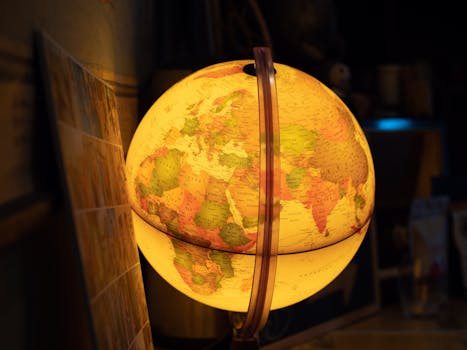How Different Societies View the Concept of Luck
Luck, a concept as old as humanity itself, varies significantly across different cultures and societies. It influences decisions, beliefs, and even the governance of communities worldwide. This article explores how various societies perceive luck, the implications of these beliefs, and practical examples of luck in action. From the bustling streets of Tokyo to the quiet villages of Ireland, join us on a global journey exploring the fascinating interpretations of luck.
Western Societies: Fortune and Chance
In many Western cultures, particularly in the United States and Europe, luck is often seen as a random yet controllable force. People believe that luck, whether good or bad, is a result of random chance but can be swayed by one's actions or decisions. For instance, gambling is a significant industry in the West, built on the foundational belief that luck can be tempted and sometimes tamed. Las Vegas, known as the gambling capital of the world, epitomizes this belief where millions of dollars are staked on the whims of fortune.
The advantage of this viewpoint is its empowerment of individuals, instilling the belief that they can influence outcomes through their actions—be it through carrying a lucky charm or avoiding certain actions that are considered unlucky. However, the downside is that this can lead to superstitions that dictate behavior and can cause anxiety and irrational decisions.
Eastern Perspectives: Harmony and Moral Order
Contrastingly, in many Eastern cultures, like those in China and Japan, luck is often intertwined with fate, destiny, and the balance of the cosmos. Luck is not just a random event but is tied to one’s ethical conduct and the right alignment with the cosmic forces. Practices like Feng Shui in China or the various Matsuri festivals in Japan are steeped in the traditions of attracting good luck through right action and harmony with the environment.
The benefit of this approach is its focus on moral integrity and harmony with others, promoting societal cohesion and mutual respect. However, it could also lead to fatalistic attitudes where people might accept their luck without attempting to change unfavorable circumstances.
Indigenous and Tribal Views: Connection with Nature
In many indigenous and tribal societies, such as the Native American communities or the Maori of New Zealand, luck is often seen as a byproduct of one’s relationship with nature. Good luck is the result of a respectful and symbiotic relationship with the natural world, and bad luck a consequence of imbalance or disrespect.
This perspective teaches a valuable lesson in environmental conservation and respect for nature, linking prosperity with the health of the earth. The challenge here is that modern issues, such as climate change and industrialization, pose significant threats to these traditional beliefs, often leading to conflicts or cultural erosion.
African Interpretations: Community and Ancestral Spirits
In many African cultures, luck is commonly viewed through the lens of community and the influence of ancestral spirits. The Yoruba people in Nigeria, for example, often seek the blessings of their ancestors for good luck and protection against misfortune. This communal approach to luck fosters strong family ties and a sense of continuity and belonging.
The advantage is the strong support network and the comforting sense of not facing life’s challenges alone. On the downside, it can sometimes lead to dependency on the community or family, potentially stifling individual initiative.
Conclusion: Embracing a Global View of Luck
Understanding how different societies view luck offers us a mirror to our own beliefs and challenges us to think broadly about fate, fortune, and destiny. Whether we see luck as a random chance, a cosmic alignment, a reward for our actions, or a gift from our ancestors, we can learn from each other and perhaps find ways to increase our own good fortune.
In a world that is increasingly interconnected, embracing a global view of luck may not only enrich our understanding but also our experience of life. So, why not explore these diverse beliefs in luck? You might just find that your luck changes as you open your mind to the world’s rich tapestry of beliefs and traditions.

.png)





